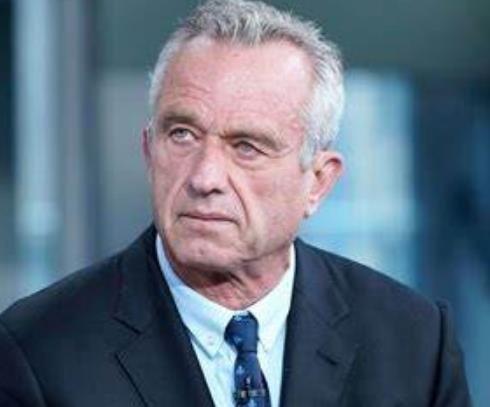The cannabis industry is watching closely as Robert F. Kennedy Jr. officially steps into his role as U.S. health secretary. His confirmation in a 52-48 Senate vote sparked both hope and skepticism within the marijuana sector, with stakeholders wondering if his past remarks will translate into policy shifts—or if political pressures will keep reform stalled.
A Complicated History with Cannabis Reform
RFK Jr.’s stance on marijuana has been anything but straightforward. During his presidential campaign, he voiced support for decriminalization, but his confirmation hearings told a different story. When pressed on cannabis rescheduling, he dodged direct commitments, choosing instead to emphasize that he would “review the reasoning” behind the current recommendations.
That statement has left reform advocates wary. The Biden administration’s Department of Health and Human Services (HHS) had already concluded that marijuana has a “currently accepted medical use,” leading the Justice Department to propose moving it from Schedule 1 to Schedule 3 under the Controlled Substances Act. Kennedy, however, stopped short of endorsing that conclusion, indicating he might reconsider the science behind it.
This uncertainty is compounded by his reported conversation with Republican Sen. Pete Ricketts of Nebraska. Ricketts, a fierce opponent of marijuana, claimed that Kennedy assured him he would “follow the science on the harms of marijuana.” That’s not exactly the language reform advocates want to hear.

Trump’s Shadow Looms Over Marijuana Reform
No matter where Kennedy lands on the issue, his influence over rescheduling is limited. The ultimate authority rests with the Drug Enforcement Administration (DEA), unless Congress takes action. And if history is any guide, federal lawmakers aren’t in a hurry to touch cannabis legislation.
Adding another layer of uncertainty is President Donald Trump. While he expressed support for marijuana rescheduling on the campaign trail, he has remained silent on the matter since returning to the White House. Given that his administration is pushing for budget cuts to scientific research, some fear cannabis studies could be an unintended casualty.
One thing is clear: if reform moves forward, it will be because Trump decides to let it happen, not because of anything Kennedy does.
Industry Leaders Still See an Opening
Despite these political roadblocks, some cannabis industry insiders remain hopeful. Emily Paxhia, co-founder and managing director of Poseidon Asset Management, believes Kennedy’s confirmation reflects a broader cultural shift in attitudes toward health and wellness.
“RFK being confirmed demonstrates that the American perspective on ‘health’ is shifting to a less conventional and more exploratory mindset,” Paxhia shared in a LinkedIn post.
She pointed out that cannabis sits “squarely in the middle” of this shift, suggesting that public sentiment may ultimately outpace political hesitation.
Optimism in the sector isn’t unfounded. The legal cannabis industry has expanded dramatically over the past decade, with more states legalizing both medical and recreational use. Public support for reform remains high, with a 2023 Pew Research poll finding that 88% of Americans support some form of marijuana legalization.
Will Kennedy’s Influence Matter?
Kennedy’s role at HHS will be important but not decisive in the broader cannabis debate. His department’s findings help shape policy, but without DEA action—or a push from Congress—major changes are unlikely.
That said, his position still holds weight in several key areas:
- Medical Research: HHS oversees funding for scientific studies, and Kennedy’s approach to cannabis research could either advance or hinder new discoveries.
- Public Health Messaging: The department plays a role in shaping public perceptions of cannabis, which could influence broader political support.
- Regulatory Decisions: If marijuana is rescheduled, HHS will be involved in determining how it is regulated as a pharmaceutical product.
If Kennedy leans toward skepticism, he could slow the momentum for reform. If he remains open to evolving science, he might help push the conversation forward.
A Wait-and-See Approach
For now, the cannabis industry is in limbo. Kennedy’s confirmation raises more questions than answers, and without clear signals from the Trump administration, speculation is all that’s left.
What’s certain is that marijuana reform is bigger than any one official. Whether RFK Jr. ends up being a roadblock or a reluctant ally, the movement toward legalization won’t stop—it just might take longer than advocates hope.
